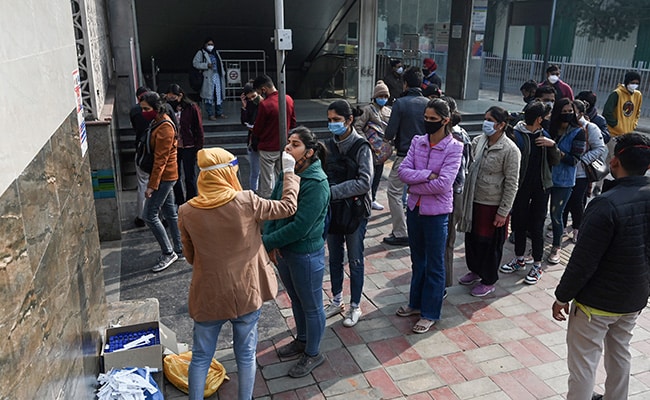India has been grappling with the COVID-19 pandemic for over a year now. The country has witnessed multiple waves of the virus, with the latest surge being the most concerning. On March 30th, 2023, India recorded 3,016 new COVID-19 cases in the past 24 hours, marking a 40% jump since yesterday. The rising number of cases has once again raised concerns about the ability of the Indian healthcare system to manage the pandemic.
The current surge in cases can be attributed to multiple factors. One of the primary reasons is the emergence of new COVID-19 variants that are more transmissible and potentially more lethal. Another reason is the lack of adherence to COVID-19 protocols, such as wearing masks, maintaining social distancing, and avoiding large gatherings. The easing of restrictions and resumption of economic activities has also contributed to the surge in cases.
The situation in India is particularly worrying as the country is home to over 1.3 billion people. The sheer size of the population and the country’s socio-economic diversity make it challenging to manage the pandemic effectively. The Indian healthcare system has been under immense pressure since the pandemic’s onset, with a shortage of medical supplies and personnel being a common problem.
The surge in cases is likely to put further strain on the already overburdened healthcare system. Hospitals and healthcare facilities across the country are struggling to cope with the surge in cases. The shortage of medical oxygen, which is crucial for COVID-19 patients, has become a major issue in many parts of the country. The shortage has led to several deaths, with patients dying due to a lack of oxygen supply.
The Indian government has been taking steps to tackle the surge in cases. The vaccination drive has been ramped up, with the government aiming to vaccinate the entire population by the end of the year. The government has also issued guidelines for COVID-19 protocols and urged people to follow them strictly. However, the effectiveness of these measures is yet to be seen.
The surge in cases has also highlighted the importance of preparedness in tackling pandemics. The Indian healthcare system has long been underfunded and under-resourced, with inadequate investment in public healthcare infrastructure. The pandemic has exposed the vulnerabilities of the system and underscored the need for urgent reforms.
Investing in public healthcare infrastructure, improving healthcare access, and strengthening the healthcare workforce are some of the critical areas that need attention. The government must prioritize these areas and take steps to improve the healthcare system’s resilience. The pandemic has shown that preparedness and resilience are crucial in managing pandemics effectively.
The surge in cases has also highlighted the need for global cooperation in tackling pandemics. The COVID-19 pandemic has affected countries across the world, with no country being immune to its impact. Therefore, global cooperation is critical in tackling pandemics effectively.
India has been at the forefront of global efforts to tackle the pandemic. The country has been providing medical supplies and equipment to other countries and has also been involved in vaccine diplomacy. The government’s efforts are commendable, and more countries should come forward to support global efforts to tackle the pandemic.
In conclusion, the surge in COVID-19 cases in India is a cause for concern. The healthcare system is under immense pressure, and urgent measures need to be taken to manage the pandemic effectively. The government must prioritize investment in public healthcare infrastructure and take steps to improve the healthcare system’s resilience. Global cooperation is also critical in tackling pandemics effectively, and more countries should come forward to support these efforts. The pandemic has exposed the vulnerabilities of the healthcare system and underscored the need for urgent reforms. We must learn from this experience and take steps to be better prepared for future

